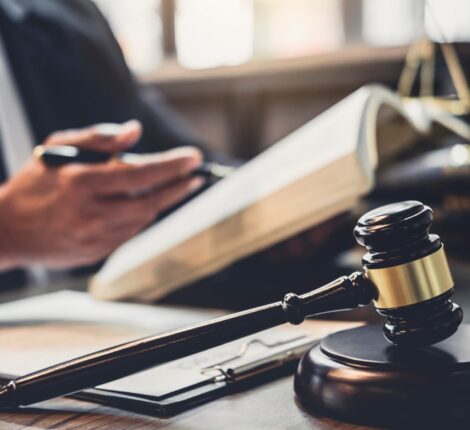How Disability Lawyers Support Students
Disability discrimination is a widespread issue affecting students in many schools across the country. According to the National Center for Education Statistics, about 14% of all public school students receive special education services under the Individuals with Disabilities Education Act (IDEA). This statistic highlights the importance of addressing and fighting against discrimination. Below, an IEP violation lawyer will explore how disability discrimination lawyers support students, ensuring their rights are protected.
What Is Disability Discrimination?
Disability discrimination occurs when students are treated unfairly because of their disabilities. This can happen in various ways, including:
– Denial of accommodations
– Unfair disciplinary actions
– Exclusion from school activities
– Bullying and harassment
Title IX And Disability Rights
Creating a safe and inclusive environment in educational institutions is crucial, especially for students with disabilities. These students often face unique challenges that can hinder their academic progress, ranging from inaccessible facilities to discriminatory practices.
Title IX attorneys specializing in disability rights play a significant role in ensuring fair treatment for these students.
Title IX Protection: Disability Rights
According to our friends at K Altman Law, Title IX is a federal law that prohibits sex-based discrimination in educational programs receiving federal funding. While primarily known for protecting against gender discrimination, it also offers important protections for students with disabilities.
Here’s how Title IX safeguards the rights of these students:
Equal Access To Educational Opportunities
Under Title IX, students with disabilities are entitled to the same educational opportunities as their peers. Schools and universities must ensure that all programs, activities, and services are accessible to all students, regardless of disability status. This includes providing reasonable accommodations to enable full participation in the educational experience.
Nondiscrimination In Admissions And Recruitment
Title IX prohibits discrimination against students with disabilities in the admissions process. Schools and universities cannot reject a student’s application based solely on their disability status. Additionally, schools cannot use disability status as a factor in recruitment or in making decisions about academic or extracurricular opportunities.
Harassment And Retaliation Protection
Students with disabilities are protected from harassment and retaliation under Title IX. Harassment can take many forms, including physical, verbal, or written conduct that creates a hostile environment. Schools are obligated to investigate and address any reports of harassment or retaliation against students with disabilities.
Accessible Physical Environments
Title IX requires schools and universities to provide accessible physical environments. This means ensuring that buildings, classrooms, and other facilities are accessible to individuals with mobility impairments, and providing assistive technology and devices to students who need them.
Legal Advocacy
Disability discrimination lawyers provide legal advocacy for students facing discrimination. They understand the laws and regulations that protect students with disabilities, such as:
– Individuals with Disabilities Education Act (IDEA)
– Americans with Disabilities Act (ADA)
– Section 504 of the Rehabilitation Act
By leveraging these laws, lawyers can ensure that students receive the accommodations and support they need.
Representation In Meetings
When a student with a disability faces issues at school, various meetings may be required, such as:
– Individualized Education Program (IEP) meetings
– 504 Plan meetings
– Disciplinary hearings
Lawyers can represent students and their families in these meetings, advocating for appropriate accommodations and fair treatment.
Fighting Unfair Disciplinary Actions
Students with disabilities often face unfair disciplinary actions. For example, a student with autism might be disciplined for behaviors related to their disability. Lawyers can help by:
– Challenging suspensions or expulsions
– Ensuring that the student’s disability is considered in disciplinary decisions
– Advocating for positive behavioral interventions
4. Ensuring Access To Accommodations
Schools are required to provide accommodations to students with disabilities. These accommodations might include:
– Extra time on tests
– Modified assignments
– Physical accessibility
– Sign language interpreter
If a school fails to provide necessary accommodations, a lawyer can step in to enforce compliance.
5. Addressing Bullying And Harassment
Bullying and harassment are unfortunately common for students with disabilities. Lawyers can help by:
– Holding schools accountable for preventing and addressing bullying
– Ensuring that anti-bullying policies are enforced
– Seeking remedies for students who have been harmed
6. Pursuing Legal Action
In some cases, it may be necessary to pursue legal action against a school or school district. This could involve filing complaints with:
– The U.S. Department of Education’s Office for Civil Rights
– State education agencies
– Courts
Lawyers can guide families through the legal process, helping to secure justice and compensation.
Impact of Legal Support
The support of disability discrimination lawyers can lead to positive outcomes for students, such as:
– Improved access to education
– Fair treatment in disciplinary actions
– Enhanced protections against bullying
– Successful enforcement of accommodations
Disability discrimination lawyers play a vital role in ensuring that students with disabilities receive fair treatment and access to education. They provide essential legal advocacy, represent students in meetings, fight unfair disciplinary actions, ensure access to accommodations, address bullying and harassment, and pursue legal action when necessary.
Their support can lead to significant improvements in the educational experiences of students with disabilities. By understanding the role of these lawyers and knowing how to find them, families can better navigate the challenges of disability discrimination and secure the rights of their children.
In conclusion, disability discrimination lawyers are indispensable allies for students with disabilities. They provide the expertise and advocacy needed to navigate the complexities of education law and protect students’ rights. If you or someone you know is facing disability discrimination, seeking the assistance of a knowledgeable lawyer can make all the difference.





